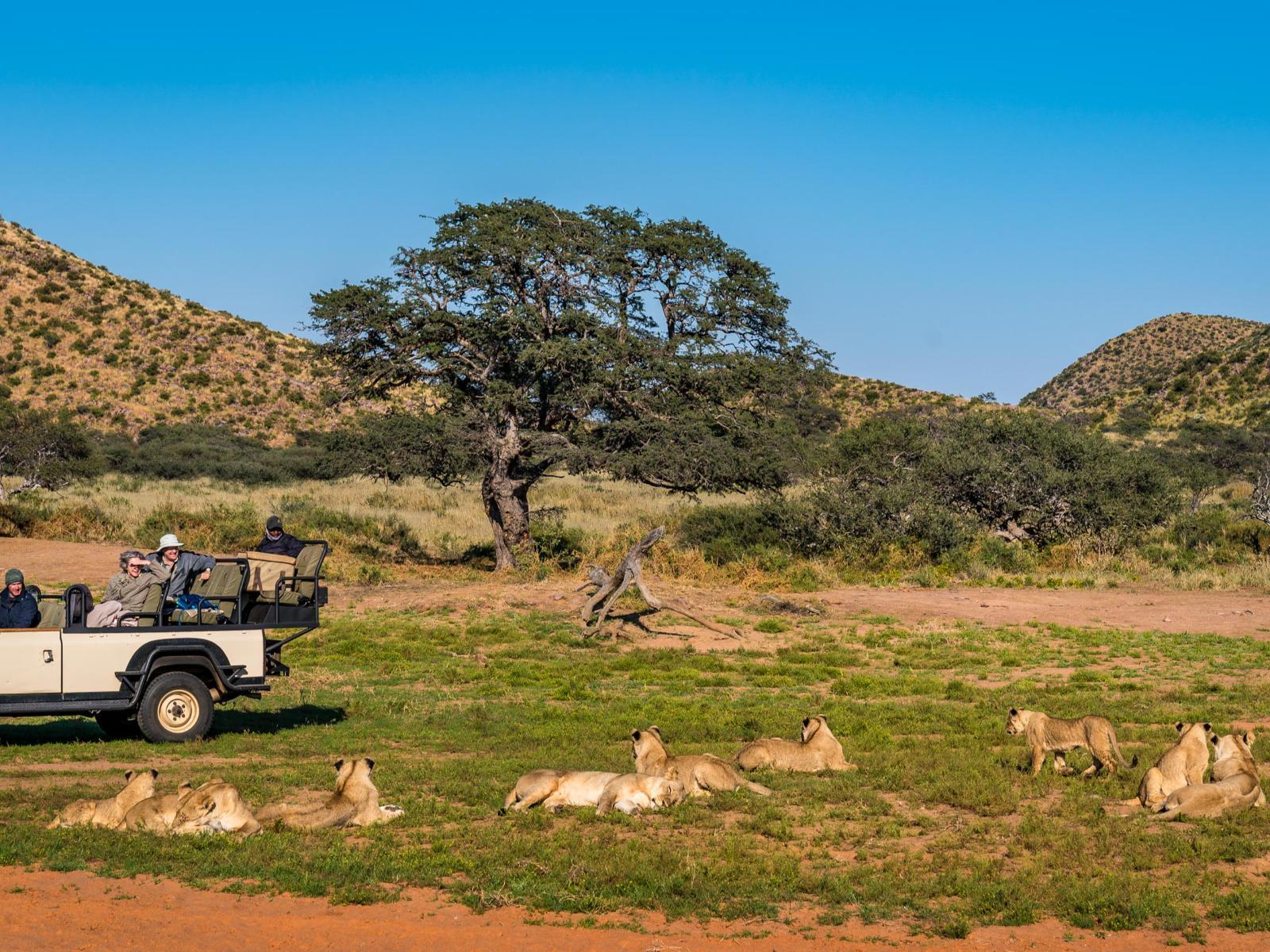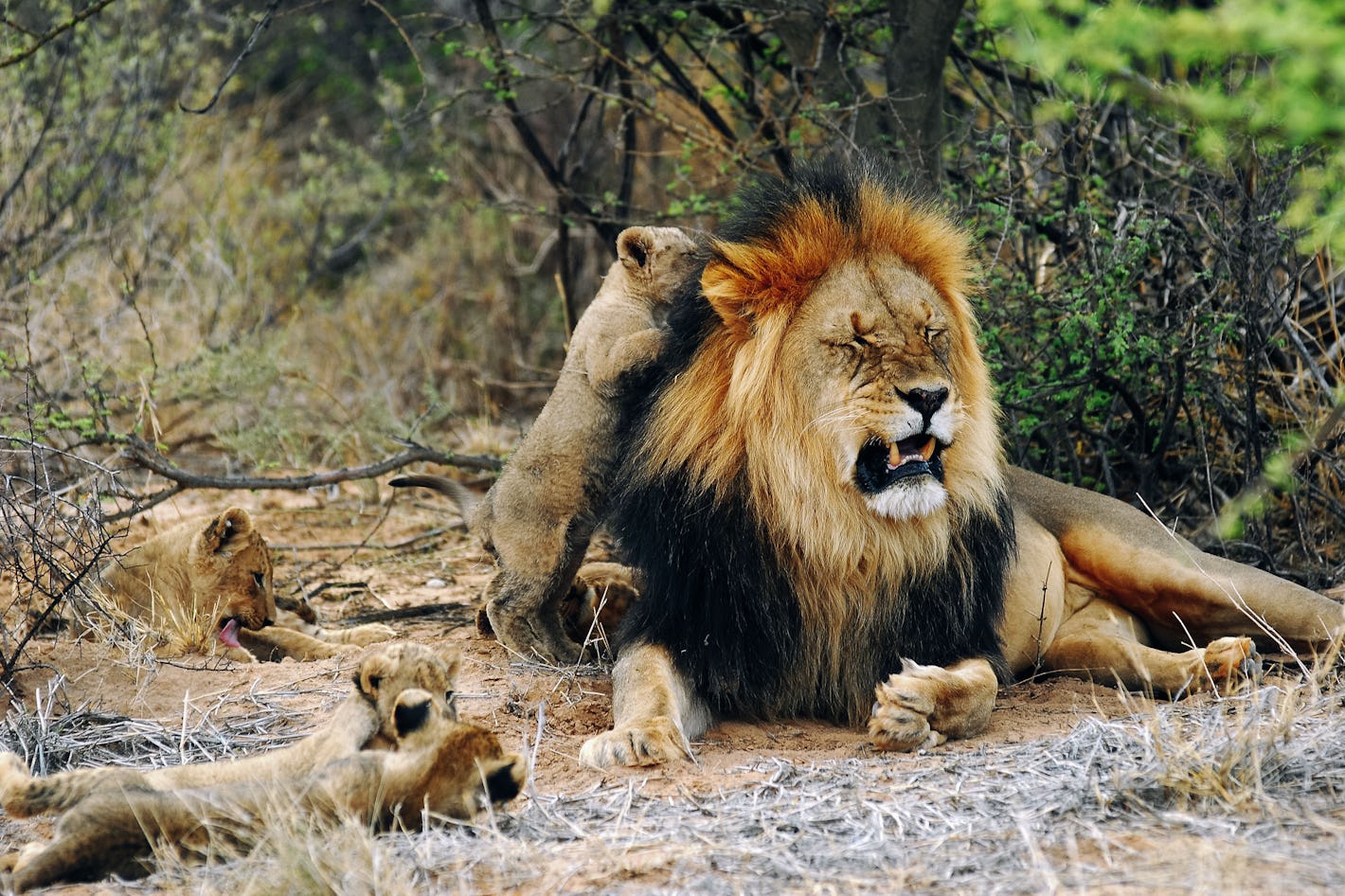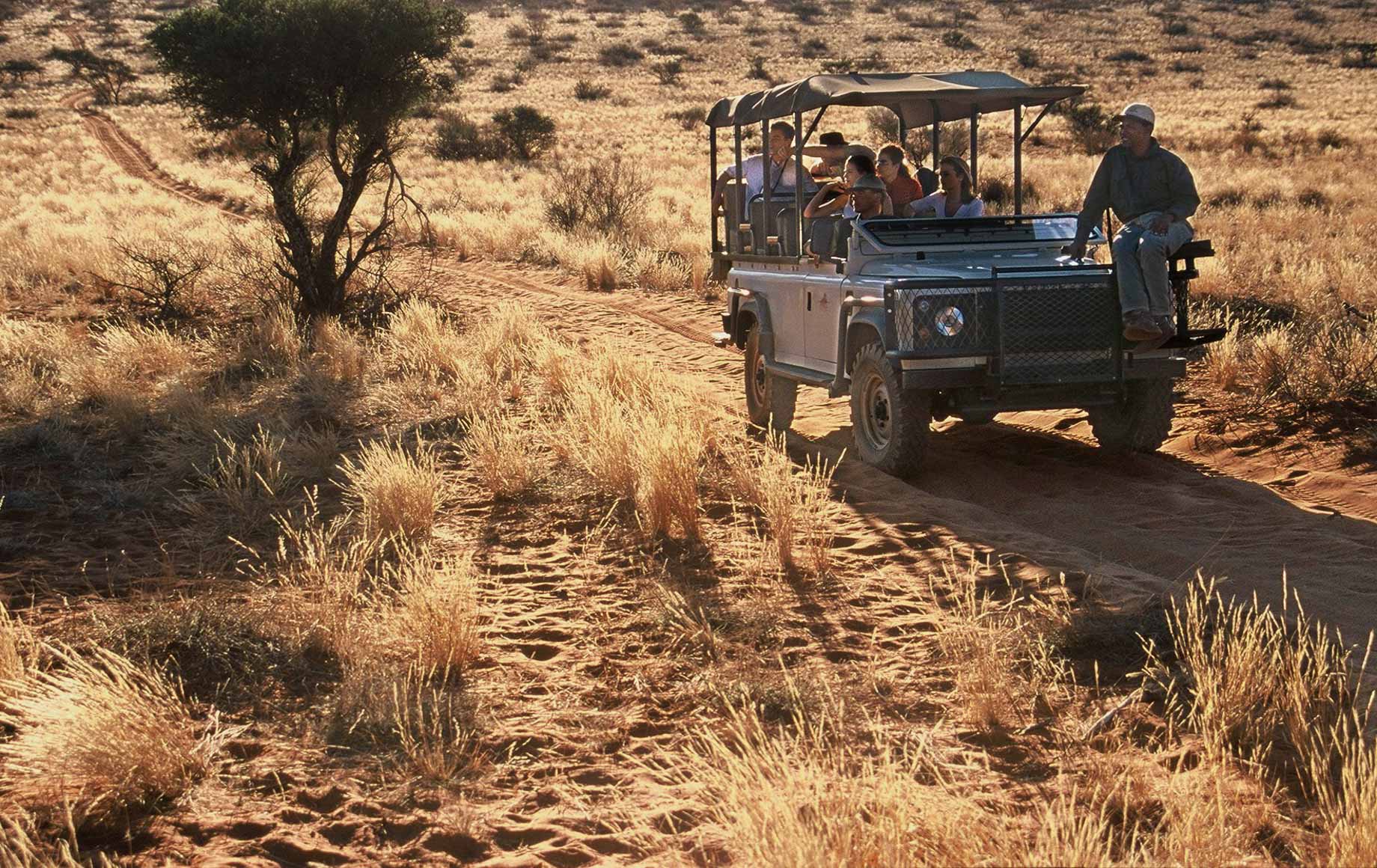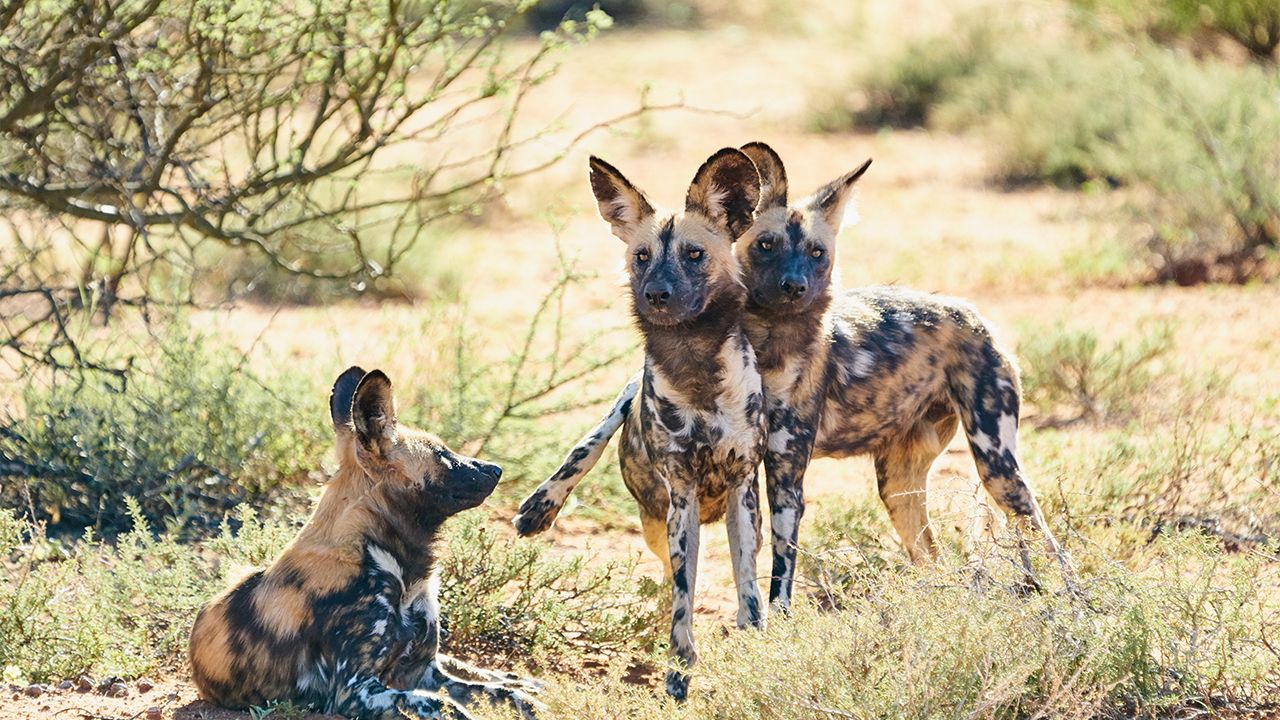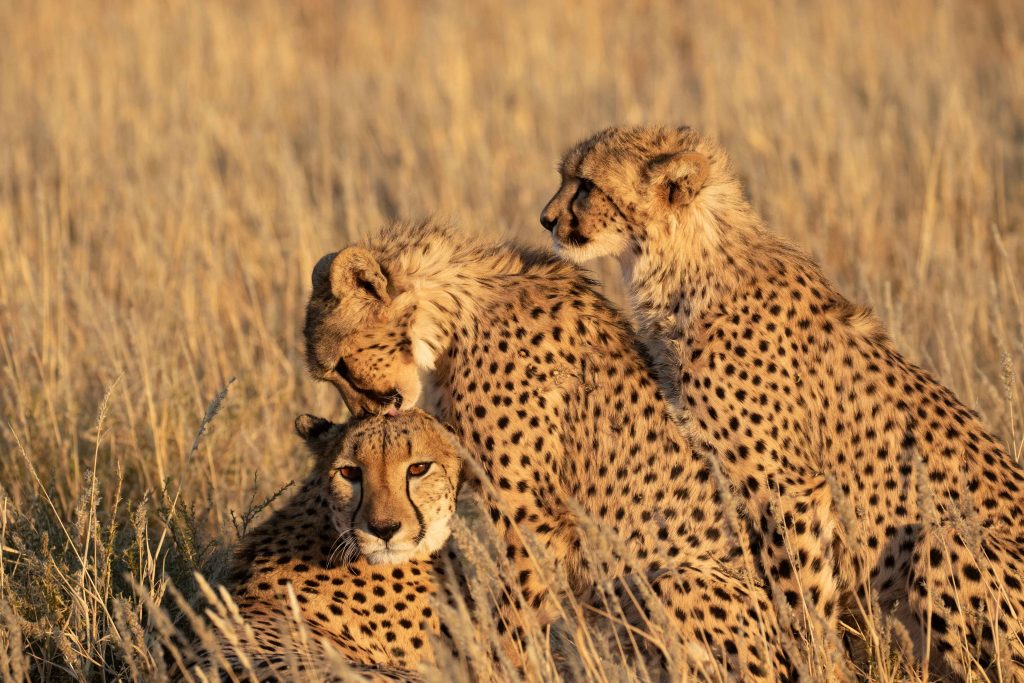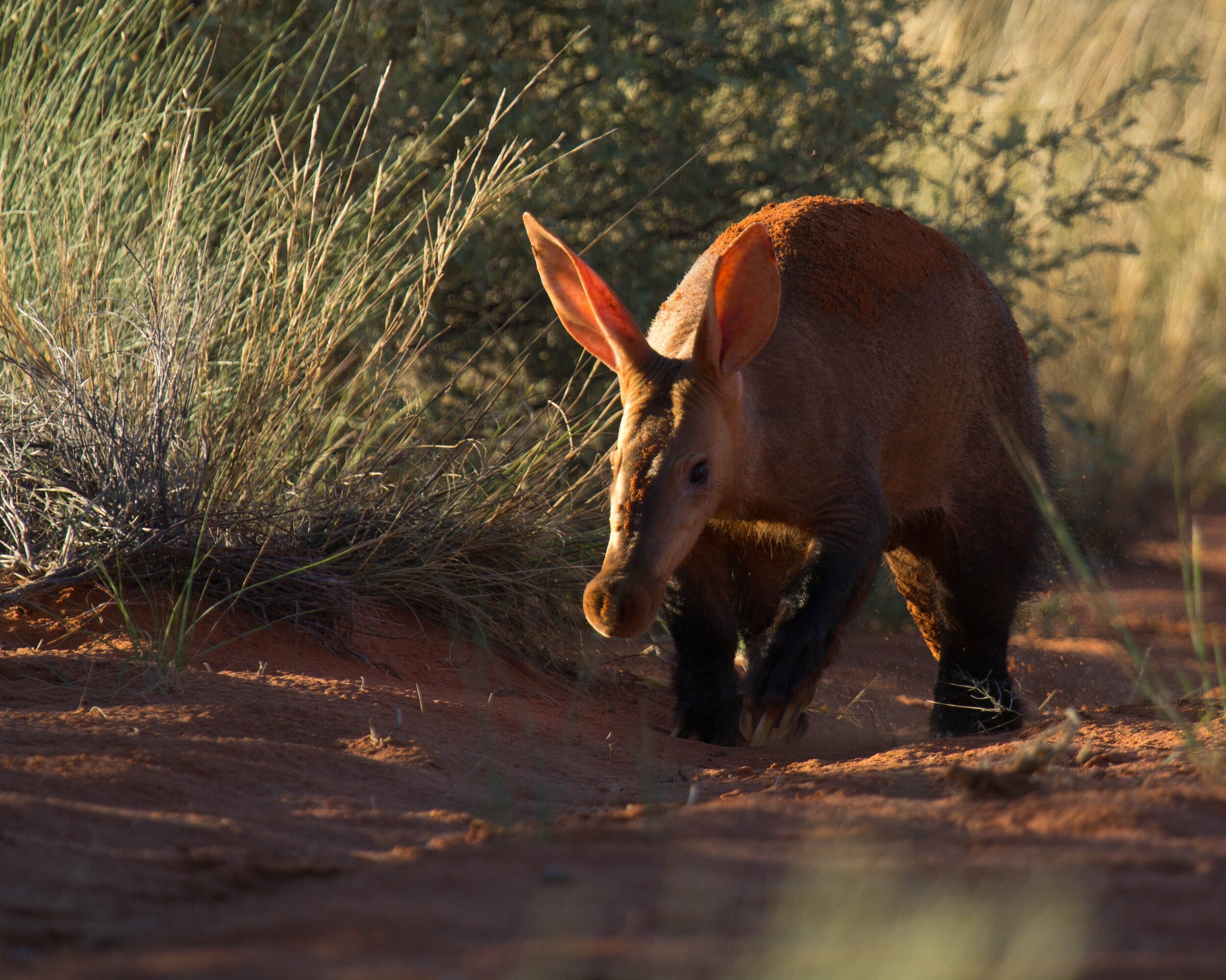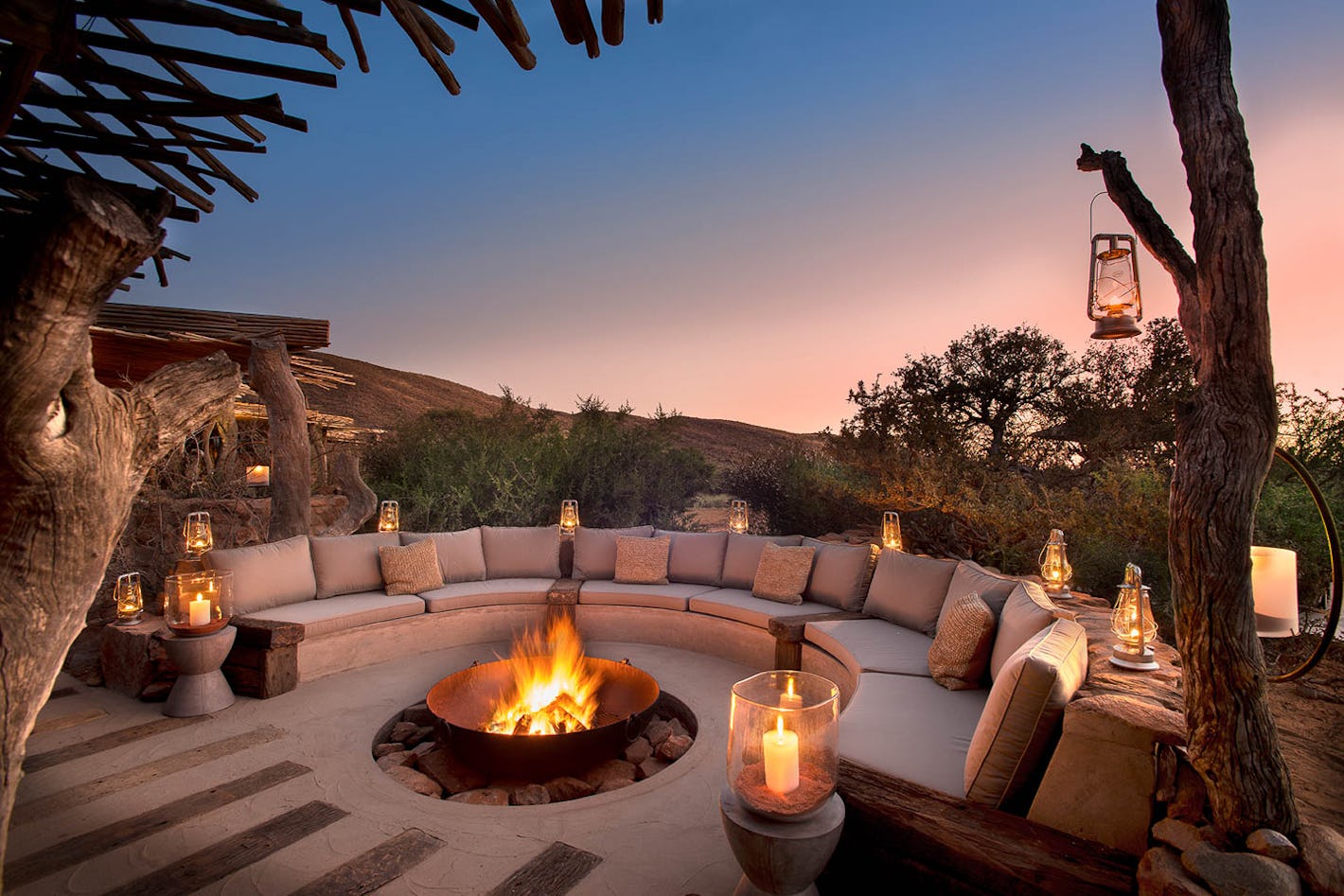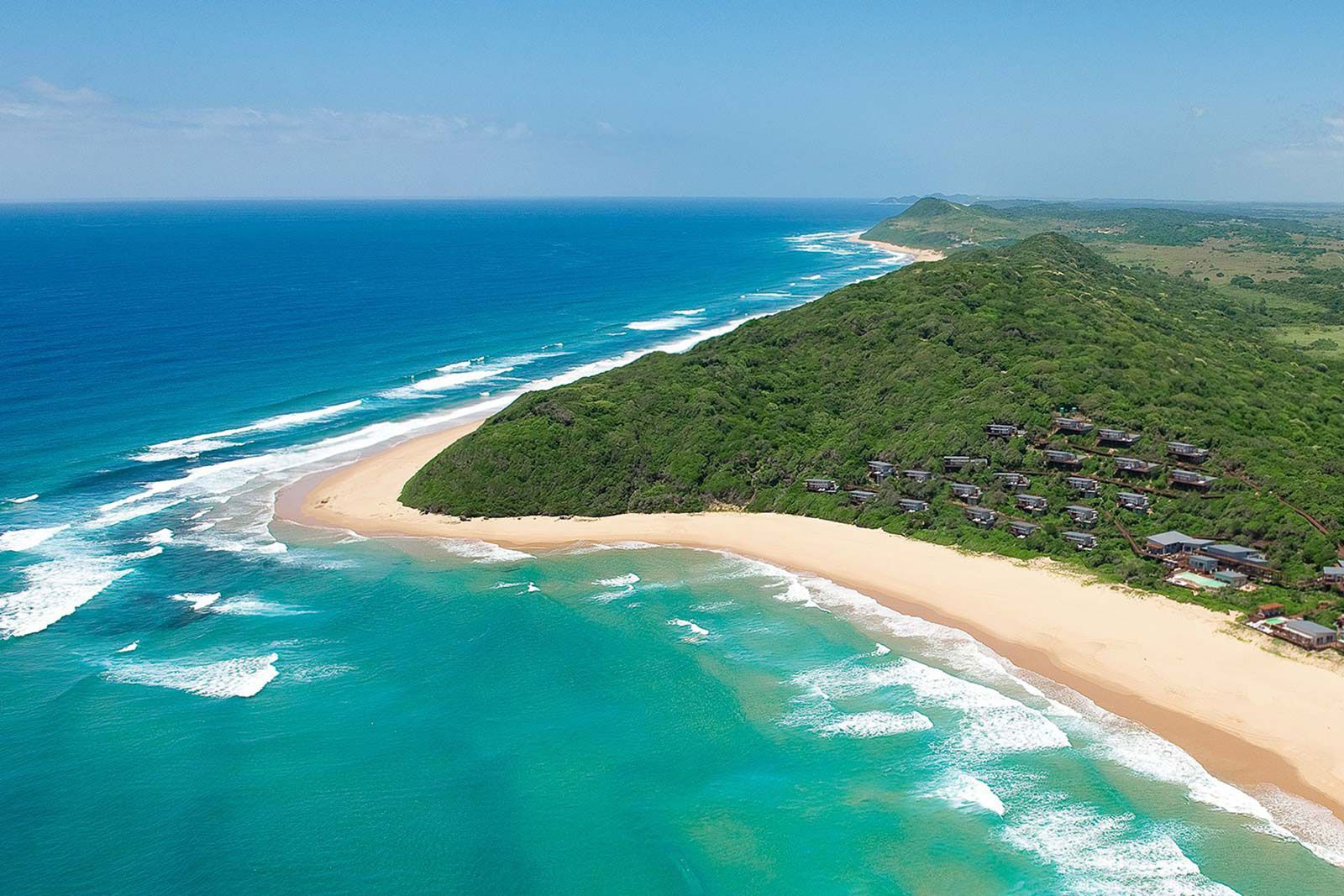Views Of Tswalu Kahalari Reserve
About
location:
Northern Cape province, South Africa
Tswalu Kalahari Reserve is a sprawling private game reserve located in the Northern Cape province of South Africa, covering an area of over 100,000 hectares. It is the largest private game reserve in South Africa and offers a truly exclusive and luxurious safari experience in the heart of the Kalahari Desert.
One of the most striking features of Tswalu Kalahari Reserve is its diverse and unique landscape. While the Kalahari Desert is often associated with endless stretches of sand dunes, Tswalu is characterized by vast grasslands, rugged mountains, and ancient volcanic rock formations. The reserve is also home to a number of natural springs, which attract a rich diversity of wildlife and vegetation.
Speaking of wildlife, Tswalu Kalahari Reserve is renowned for its conservation efforts and commitment to biodiversity. The reserve is home to a wide variety of wildlife, including species that are rarely seen in other parts of Africa. Visitors to Tswalu have the opportunity to spot iconic African animals such as lions, leopards, cheetahs, elephants, rhinos, giraffes, and many more. Additionally, Tswalu is known for its healthy populations of endangered and rare species, such as the pangolin, aardvark, aardwolf, and the elusive desert black rhino.
The reserve also boasts a thriving bird population, with over 270 bird species recorded within its boundaries. Bird enthusiasts will delight in the opportunity to spot unique species such as the crimson-breasted shrike, pygmy falcon, and Kori bustard, among many others.
In addition to its impressive wildlife, Tswalu Kalahari Reserve offers guests a truly exceptional safari experience. Accommodation options range from luxurious safari lodges to exclusive private villas, all designed to blend seamlessly with the surrounding natural environment. Guests can enjoy guided game drives, bush walks, horseback rides, and even hot air balloon safaris to explore the reserve and spot wildlife up close.
Furthermore, Tswalu is committed to sustainable tourism practices and community engagement. The reserve works closely with local communities to promote conservation awareness, support education initiatives, and create employment opportunities. Visitors to Tswalu can gain a deeper understanding of the region's cultural heritage and interact with local communities through authentic cultural experiences.
Overall, Tswalu Kalahari Reserve offers a truly exceptional and unforgettable safari experience unlike any other in Africa. With its stunning landscapes, diverse wildlife, luxurious accommodations, and commitment to conservation and community empowerment, Tswalu is a destination that appeals to nature lovers, conservation enthusiasts, and luxury travelers alike.
Things to know before travelling to Tswalu Kalahari Reserve
This article is a tip of the iceberg but will equip you with the "Absolute Need to Knows" for Tswalu Kalahari.
How to get there?
To get to Tswalu kahalari reserve, you have to to book an international flight to a major South African airport, such as OR Tambo International Airport in Johannesburg or Cape Town International Airport. From the international airport, you'll need to book a domestic flight to Upington Airport in the Northern Cape province of South Africa.
Once you arrive at Upington Airport, you can book a charter flight or ground transfer to Tswalu Kalahari Reserve. The Reserve offers luxury chartered transportation services for guests who prefer a more comfortable and hassle-free journey to the reserve. Depending on your mode of transportation, the journey to Tswalu Kalahari Reserve can take anywhere from 1 hour by air to 10 hours by road.
While self-driving to Tswalu Kalahari Reserve is possible, it's important to keep in mind that the roads can be long and dusty, and the reserve is located in a remote area.
About the weather
The weather at Tswalu Kalahari Reserve is characterized by distinct seasons:
Summer (October to April ) are hot and dry, with temperatures ranging from 27°C to 40°C (80°F to 104°F) during the day and cooling off at night. Winter (May to September) are mild and dry, with temperatures ranging from 12°C to 27°C (54°F to 80°F) during the day and dropping below freezing at night.
Tswalu Kalahari Reserve experiences a short rainy season from November to March, which brings occasional thunderstorms and flash floods. The rains rejuvenate the landscape and attract migratory birds and herds of wildlife. Kalahari dust storms, known locally as "Harmattan," can occur during the dry winter months, reducing visibility and covering everything in a layer of red dust.
The Kalahari sunsets are famously beautiful, and the lack of light pollution makes for excellent stargazing. The Kalahari region can experience strong winds, especially during the winter months. This can make outdoor activities like hiking and game drives more challenging, so be sure to dress warmly and protect your eyes and skin.
Despite its arid climate, Tswalu Kalahari Reserve is home to several permanent water sources, including the Motse River and Tarka Pan. These provide water for wildlife and support a diverse array of plant and animal life.
The weather at Tswalu Kalahari Reserve can be unpredictable and can vary greatly from year to year. It's important to be prepared for a range of conditions when planning your trip.
Medical matters that affect your visit.
When visiting the Tswalu Kalahari Reserve, you may need to consider the following medical matters:
Malaria
While the Tswalu Kalahari Reserve itself is not a high-risk malaria area, neighboring regions may pose a risk. It is essential to consult with a healthcare provider before your trip to determine if malaria prophylaxis is necessary.
Traveler's diarrhea
Change in diet, water source, and exposure to new bacteria can lead to traveler's diarrhea. It is important to practice safe hygiene measures, such as drinking bottled water and eating food from reputable sources.
Sun Exposure
The Kalahari Desert is known for its intense sun exposure. Visitors should take precautions like wearing sunscreen, sunglasses, and a hat to prevent sunburn and heat-related illnesses.
Dehydration
The arid climate of the Kalahari can lead to dehydration, especially when engaging in outdoor activities. Stay well-hydrated by drinking plenty of water throughout your visit.
Insect Bites
Insect bites can transmit diseases like West Nile virus and tick-borne illnesses. Use insect repellent, wear long sleeves and pants, and check for ticks regularly if engaging in outdoor activities.
Emergency Medical Facilities
While Tswalu Kalahari Reserve may have medical facilities on-site, they may be limited. It is advisable to have travel insurance that covers medical evacuation in case of emergencies.
Remember to consult with a healthcare provider or travel medicine specialist before your trip to Tswalu Kalahari Reserve to discuss necessary vaccinations, medications, and health precautions based on your individual health needs and travel itinerary.
Cultural Ettiquettes at Tswalu Kalahari Reserve
Here are some cultural etiquettes to keep in mind when visiting Tswalu Kalahari Reserve:
Be respectful of local customs and traditions, especially when interacting with the San Bushmen and other local communities. Observe wildlife from a safe distance and respect their habitats. Do not feed or touch the animals. Ask permission before taking photos of people, especially the San Bushmen.
Dress conservatively and avoid wearing revealing clothing in public. Tipping is not expected but is appreciated in South Africa. If you are happy with the service, consider leaving a small tip for your guide or server. If you plan to give gifts to local communities, choose practical items such as school supplies or medical supplies. Avoid giving items that may disrupt local traditions or create dependencies.
Tswalu Kalahari Reserve has a "no alcohol in the bush" policy to ensure the safety of guests and wildlife. While English is widely spoken at Tswalu Kalahari Reserve, it can be respectful to learn a few phrases in local languages, such as Setswana or Afrikaans. Tswalu Kalahari Reserve is committed to sustainable tourism practices, so it's important to follow any conservation guidelines provided by the reserve.
Overall, the cultural etiquettes at Tswalu Kalahari Reserve revolve around respecting local culture and wildlife and minimizing your impact on the environment.
Language and communication at Tswalu Kalahari Reserve
Language and communication at Tswalu Kalahari Reserve is diverse and reflects the local culture and international visitors. English is the primary language used at Tswalu Kalahari Reserve. All staff members speak English, and all signs, menus, and other written materials are in English.
Setswana and Afrikaans are also spoken by local communities and some staff members. Learning a few phrases can be a way to show respect for the local culture. Tswalu Kalahari Reserve welcomes guests from around the world, so it's not uncommon to hear a variety of languages spoken. The staff members are accustomed to interacting with people from different countries and backgrounds.
The reserve is deaf-friendly, with some staff members trained in sign language. Observing wildlife behavior and non-verbal communication is an important part of the Tswalu Kalahari Reserve experience. Guides and rangers can help interpret animal behavior and communication.
Tswalu Kalahari Reserve provides written information about its history, wildlife, and conservation efforts. This can be found in brochures, signs, and other written materials provided to guests.
Overall, Tswalu Kalahari Reserve offers a variety of language and communication options to ensure guests from all backgrounds can enjoy and learn about the reserve.
Safety at Tswalu Kalahari Reserve
While the reserve is generally safe for visitors, it's important to be mindful of wildlife. Rangers and guides are trained to handle wildlife encounters and will provide instructions if needed. Game drives are conducted in open safari vehicles, which allow for a close-up view of wildlife. However, it's important to stay seated and follow the instructions of your guide at all times.
While crime rates in South Africa are high, Tswalu Kalahari Reserve is located in a remote area with low crime rates. Nevertheless, it's recommended to take basic precautions, such as keeping valuables in a secure place and not walking alone at night. The reserve has a well-equipped medical facility with trained medical staff. However, it's a good idea to carry a first-aid kit and any necessary medications with you.
It's highly recommended to have comprehensive travel insurance that includes medical evacuation in case of an emergency. Tswalu Kalahari Reserve has various security measures in place, including regular security patrols, CCTV cameras, and access control systems. Guests are required to wear a security tag during their stay for safety and security reasons.
Tswalu Kalahari Reserve has a disaster management plan in place to handle emergencies such as fires or severe weather events. Guests are briefed on the plan upon arrival.
Overall, Tswalu Kalahari Reserve is considered a safe destination with experienced staff and security measures in place to ensure the safety of guests and wildlife.
Vital Information on Money Matters
Tswalu Kalahari Reserve accepts payment in South African Rand (ZAR) via major credit cards, traveler’s checks, and cash (ZAR or USD). Prices quoted by the reserve include a 14% VAT. Tipping, though not required, is appreciated for good service. Travel insurance is highly recommended to safeguard against unforeseen circumstances. Ensure that you have the appropriate payment methods and currencies to ensure a hassle-free experience at Tswalu Kalahari Reserve.
Exchange rates can fluctuate, so be aware of the current rates to make sure you're getting a fair price. Tswalu Kalahari Reserve is a high-end safari destination, so plan your budget accordingly. Remember to factor in additional costs such as gratuities and excursions. It's also a good idea to have some local currency on hand for small purchases or tips.
There are no banks or ATMs within the reserve, so it's essential to bring enough cash or traveler’s checks to cover your expenses. Some credit cards may charge a foreign transaction fee. Check with your credit card provider before your trip to avoid any unexpected charges. In addition to the 14% VAT, there may be additional taxes and fees applied to your bill. Ask the resort staff for clarification if you have any questions.
Fun things to do at Tswalu Kalahari Reserve
Game Drives
Take a guided game drive through the Tswalu Kalahari Reserve to spot a variety of wildlife including black-maned lions, cheetahs, giraffes, and meerkats. The reserve offers both morning and evening game drives, each providing a unique opportunity to observe animals in their natural habitat.
Bush Walks
Embark on a guided bush walk with experienced trackers to learn more about the flora and fauna of the Kalahari Desert. Get up close to smaller wildlife, tracks, plants, and insects while enjoying the sights and sounds of the reserve on foot.
Stargazing
Experience the breathtaking night skies of the Kalahari Desert by going on a stargazing excursion. Learn about the constellations and astronomy from knowledgeable guides while marveling at the millions of stars above you in this remote and unpolluted environment.
Sundowners
Enjoy a picturesque sunset while sipping on a refreshing drink at a scenic spot within the reserve. The staff at Tswalu Kalahari Reserve can set up a private sundowner experience for you to relax and soak in the beauty of the Kalahari landscape as the sun dips below the horizon.
Visiting the Malori Sleep-Out Deck
Spend a night under the stars at the Malori Sleep-Out Deck, a secluded and open-air platform where you can sleep in comfort with unobstructed views of the night sky. Listen to the sounds of the wilderness and feel at one with nature during this unique and unforgettable experience.
Bush Dining
Indulge in a bush dining experience at Tswalu Kalahari Reserve, where you can enjoy a delicious meal under the African sky surrounded by the sounds of the wilderness. Whether it's a romantic dinner for two or a group celebration, dining in the bush is a memorable way to savor the local cuisine and ambiance.
Spa Treatments
Relax and rejuvenate with a range of spa treatments offered at Tswalu Kalahari Reserve's luxury lodges. Pamper yourself with a massage, facial, or body treatment using natural ingredients, and unwind after a day of safari adventures in the tranquil surroundings of the Kalahari Desert.
Cultural Experiences
Immerse yourself in the rich culture of the Kalahari by participating in cultural experiences arranged by the reserve. Learn about the traditions and way of life of the San people, the indigenous inhabitants of the region, through interactive storytelling, traditional dance performances, and craft demonstrations.
Photography Safaris
Capture the beauty of the Kalahari Desert and its wildlife through a photography safari guided by experienced professionals. Learn photography techniques and composition while exploring the reserve's picturesque landscapes and diverse wildlife, ensuring you leave with stunning images to remember your trip.
Bird Watching
Tswalu Kalahari Reserve is home to a variety of bird species, making it a paradise for birdwatchers. Join a guided bird-watching excursion to spot unique and colorful birds such as crimson-breasted shrikes, kori bustards, and martial eagles while listening to their melodic calls in the tranquil desert setting.
Conservation Activities
Get involved in conservation efforts at Tswalu Kalahari Reserve by participating in educational programs and activities aimed at protecting the local environment and wildlife. Learn about the reserve's conservation initiatives, such as anti-poaching measures and sustainable practices, and contribute to their preservation during your stay.
Horseback Riding
Explore the Kalahari Desert from a different perspective by embarking on a horseback riding adventure offered at the reserve. Ride through the vast landscapes alongside experienced guides, experiencing the thrill of encountering wildlife up close while enjoying the freedom of riding in the open wilderness.
Interactive Wildlife Encounters
Enhance your wildlife experience at Tswalu Kalahari Reserve by participating in interactive encounters with animals such as meerkats. Join experienced guides in tracking and observing these playful creatures in their natural habitat, learning about their behavior and social dynamics in an up-close and personal way.
Nature Walks with Specialists
Gain deeper insights into the natural world of the Kalahari by joining specialized nature walks led by resident experts on ecology, botany, or wildlife biology. Explore the diverse ecosystems of the reserve while engaging in informative discussions and hands-on learning experiences tailored to your interests.
Whether you seek adrenaline-pumping adventures, cultural discoveries, or moments of relaxation in nature, Tswalu Kalahari Reserve offers a wide range of exciting activities to make your safari experience unforgettable.
Who can travel to Tswalu Kalahari Reserve?
Tswalu Kalahari Reserve is a welcoming destination that can be enjoyed by a wide range of travelers. The reserve is perfect for travelers looking for an authentic safari experience and outdoor adventure. The reserve is also home to a diverse array of wildlife, flora, and fauna, making it an ideal destination for wildlife enthusiasts and nature photographers.
Tswalu Kalahari Reserve offers child-friendly activities, including wildlife drives, bush walks, and cultural experiences. The reserve’s luxury lodges and private dining experiences make it an ideal destination for romantic getaways or honeymoons. The reserve is also perfect for solo travelers who want to explore the African bush in safety and comfort. The reserve's knowledgeable guides will ensure you have a memorable and enjoyable experience.
Tswalu Kalahari Reserve offers exclusive accommodations and high-end experiences, making it an ideal destination for luxury travelers seeking a five-star safari experience.
Tswalu Kalahari Reserve offers specialized safaris and activities for groups with specific interests, such as bird watching, wildlife photography, or tracking big game. The reserve's luxury lodges and remote location make it an ideal destination for business retreats and corporate events.
With its diverse wildlife and stunning landscapes, Tswalu Kalahari Reserve is a destination that many visitors return to again and again, making it a favorite among safari enthusiasts.
Travel Documents
You will need a valid passport and visa to enter South Africa. Make sure your passport is valid for at least six months after your travel date and check if you need to obtain a visa before traveling.
What time of the year is best to visit?
The best time to visit Tswalu Kalahari Reserve depends on what you want to experience. The peak wildlife viewing season is during the dry season (May to September) when animals congregate around the remaining water sources, making them easier to spot. The dry winter months (June to August) are ideal for photography, as the landscape is drier and the skies are clear.
The wet summer months (October to April) are the best time to see migratory birds. If you prefer cooler temperatures, the winter months (June to August) are the best time to visit, with daytime temperatures ranging from 16-30°C (60-86°F). Shoulder seasons (April/May and October/November) offer lower rates and fewer crowds, while still providing excellent wildlife viewing opportunities.
Tswalu Kalahari Reserve hosts a variety of seasonal events, such as the Kalahari Summer Festival in December, which offers a chance to experience local culture and enjoy live music and traditional cuisine. If you're interested in learning about the local communities, visit during the San Bushmen gathering (October/November) when San Bushmen gather to share stories, skills, and traditional music.
Tswalu Kalahari Reserve offers unique experiences throughout the year, such as leopard tracking expeditions and stargazing under the reserve's crystal-clear skies, which are best seen during the winter months.
Packing essentials for your trip
Here are some packing essentials for a trip to Tswalu Kalahari Reserve:
Lightweight and breathable clothing
Pack lightweight and breathable clothing that will help you stay cool during the hot days and warm in the cooler evenings. Opt for long sleeves and pants to protect yourself from the sun and insects.
Comfortable closed-toe shoes
Bring comfortable closed-toe shoes for walking safaris and hiking excursions. Make sure they are durable and provide good support.
Sun protection
Pack sunscreen with a high SPF, wide-brimmed hats, sunglasses, and lip balm with SPF to protect yourself from the intense African sun.
Insect repellent
Tswalu Kalahari Reserve is home to various insects, so it's essential to pack insect repellent to protect yourself from bug bites.
Binoculars and camera
Don't forget to pack binoculars and a camera to capture the incredible wildlife and landscapes you'll encounter during your trip.
Personal medications and toiletries
Bring any personal medications you may need, as well as basic toiletries like toothbrush, toothpaste, and hand sanitizer.
Light backpack
A lightweight backpack will come in handy for carrying water, snacks, and other essentials during your excursions.
Reusable water bottle
Stay hydrated by bringing a reusable water bottle that you can refill to reduce plastic waste.
Travel documents
Make sure to pack your passport, travel insurance details, booking confirmations, and any other necessary travel documents in a secure and easily accessible place.
Travel adapter and electronics
If you plan to bring electronic devices, don't forget to pack a travel adapter to charge them. Consider bringing a portable charger for your devices as well.
Remember to pack light and only bring the essentials to ensure a comfortable and enjoyable trip to Tswalu Kalahari Reserve.
view map
Book Flight ticket
If this widget is not showing try reloading the page
The flight search result will be provided in a new tab
OR Tambo international airport, Johannesburg will be a good destination if you are coming from outside South Africa
Book Hotel
If this widget is not showing try reloading the page
The hotel search result will be provided in a new tab
Input Upington, South Africa, Kuruman, South Africa, Kimberly, South Africa as the city name to search and compare hotel prices
You can book tours at hotels upon arrival.
